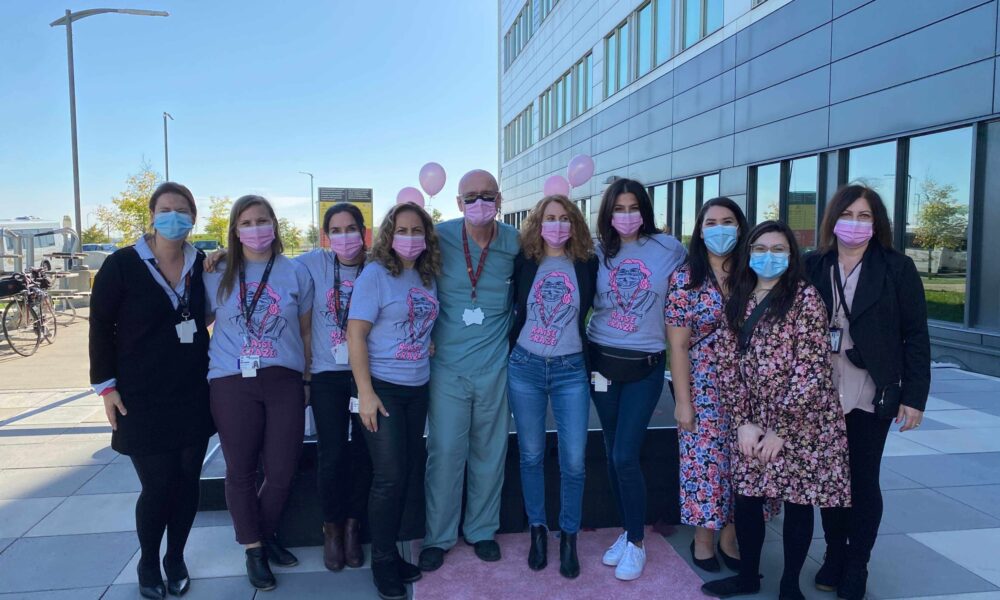On average, 76 women in Canada are diagnosed with breast cancer every day. October continues to be an important month for raising awareness and funds to support research and women battling breast cancer across the country. Dr. Sarkis Meterissan, surgical oncologist and director of the MUHC Breast Clinic, is one such supporter. He completed a pledge to dye his hair pink and shave his head in honour of his patients, after raising over $300,000 for the Breast Cancer Wellness program at the McGill University Health Centre (MUHC).
“We do a good job medically when treating breast cancers using chemotherapies, but the healing side is often neglected,” Meterissan said in an interview with The McGill Tribune. “Money raised by this campaign will help restore a patient’s quality of life for free by providing access to sex therapists, nutritionists, and other psychological resources.”
A study on the mental health of breast cancer survivors who opted to remove cancerous breast tissue through a procedure known as a mastectomy found that these women are more likely to develop depression than women in the general population. In contrast to women with no prior cancer, breast cancer survivors are at a higher risk of anxiety, sleep problems, sexual dysfunction, fatigue, and pain. The psychosocial impact of mastectomies can also lead to low body esteem, including accepting negative social attitudes and internalizing a destructive understanding of one’s body. Not only do women face these challenges post-operation, but they have to make difficult choices when it comes to treatment options, such as deciding between a mastectomy or conserving breast tissue through reconstruction. In fact, it has been reported that fewer than one in five Canadian women undergo reconstruction.
“Women have taught me to not assume that all women want breast reconstruction after surgery, others are happy with their decision [to not undergo reconstruction] and continue to celebrate their scars,” Meterissan said.
Many patients develop a close bond with their oncologists, as people diagnosed with cancer often spend several years in treatment. A cancer diagnosis, depending on the severity, can be life-altering: It triggers feelings of loss, uncertainty about the future, and a constant need for emotional support. Patients often turn to their caretakers for both medical and mental support, and oncologists often play a vital role in minimizing their patients’ distress.
“You have multiple experiences from operating, [like] the follow-up and simply getting to know the families over time,” Meterissan said. “I learn from my patients each day. One of the biggest lessons I have learned in my career is to not [project] your values and feelings of success or defeat onto the patient.”
Meterissan explained the challenges oncologists face in cases of remission, sharing a story of one cancer patient who faced remission within a few months of a tumour removal surgery. After having operated on the patient and successfully excising the tumour, the patient’s cancer returned within a few months, resulting in his passing within the year. When gifted a beautiful photograph of a wild monarch butterfly by the patient’s wife, Meterissan realized that even though his patient’s time was short, he nevertheless made the most of those last few months: The patient attended his son’s wedding, spent time with his loved ones, and captured another summer through the lens of his camera.
“While it initially felt like a failure to me, it is important to recognize what patients value,” Meterissan said. “For this man, it was the gift of time. Similarly, the myriad of resources we can fund with this fundraiser will give future patients the strength to rebuild their lives. ”









Great article! Thank you Dr. Meterissan for your service to the community.